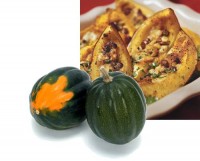
Primo’s Outlook (9/24/12 – 9/29/12)
Market Report
Lettuce:
Market is mostly steady with good quality.
Leaf:
Romaine and leaf markets are steady to off slightly. Overall quality has been very good.
Broccoli:
Broccoli is steady at higher levels. Quality has been very good.
Cauliflower:
Market remains strong, quality has been good.
Carrots:
Market has remained steady with carrots from Canada and Michigan.
Celery:
Celery market remains strong with good quality.
Strawberries:
Cost is up slightly. Quality has improved this week, but still not great.
Potatoes:
Idaho market has leveled off now with plenty of all sizes available. Burbank variety should begin shipping in 3-4 weeks.
Onions:
Idaho new crop jumbo yellows have remained steady with the red market staying strong with heavy demand.
Citrus:
Market remains very strong on oranges. 113, 138’s are very tight and are expected to remain scarce until new crop navels begin in mid to late October. Overall, quality has been good. Lemon market is steady with good arrivals from Mexico.
Cucumbers:
There is a wide range on quality and cost from Canada, Michigan, and New Jersey. Georgia is expected to start next week.
Peppers:
Market is steady, with good quality. We are sourcing mostly from New Jersey, with Georgia starting up towards the end of next week.
Tomatoes:
Tomato market is steady on rounds, grapes, and cherries. The Roma market is strong with a lot of the regional deals done or winding down. Still seeing a wide range on quality.
________________________________________________________________________
Primo’s Pick of the Week!
The many varieties of fall squash! How do you choose? Let’s start with Acorn squash!
This dark green squash is acorn-shaped, hence its name. The golden-orange flesh offers a mildly sweet flavor and a somewhat dry texture. Usually about five to eight inches long and four to five inches across, the hardy rind has deep, characteristic ridges with a splash of yellow-gold, considered a sign of maturity. Acorn Squash is not as rich in beta-carotene as other Winter varieties, but it is an excellent source of dietary fiber and contains vitamin C, vitamin B6, magnesium and manganese plus a substantial amount of potassium.
Acorn squash are a hard-skinned variety. They may be peeled, but are more often cooked with their skin-on. Peel and dice, or cut into slices along the natural ribs; toss with oils, spices or herbs and bake or roast. Serve with or without the skin. Cooked squash may be pureed and added to soups, stews, risotto, cakes or other baked goods. Bake halves and stuff with meats, cheese, grains or other vegetables. Acorn squash will keep at room temperature for many weeks.
Recipe of the Week:
Acorn Squash With Gorgonzola
Ingredients
2 acorn squash (about 2 1/2 pounds)
1/2 cup butter flavor shortening, melted
Salt and pepper to taste
6 ounces Gorgonzola cheese, crumbled (about 1 1/2 cups)
3 tablespoons raisins
1/4 cup seasoned dry breadcrumbs
Garnish: fresh parsley
Preparation
1. Pierce squash with a knife in several places. Place squash directly on middle rack in oven.
2. Bake at 350° for 45 minutes or until just tender. Remove from oven; cool.
3. Cut each squash in half; remove and discard seeds. Cut each half into two wedges. Arrange, skin side down, on a lightly greased roasting pan. Brush cut sides with shortening. Season with salt and pepper to taste.
4. Combine cheese and raisins. Top each squash wedge with cheese mixture, and sprinkle evenly with breadcrumbs; drizzle with remaining shortening.
5. Bake at 350° for 20 minutes or until cheese is melted and golden. Garnish, if desired.
Fun Facts of the Week
Acorn squash is the most widely available among the small winter squash.


